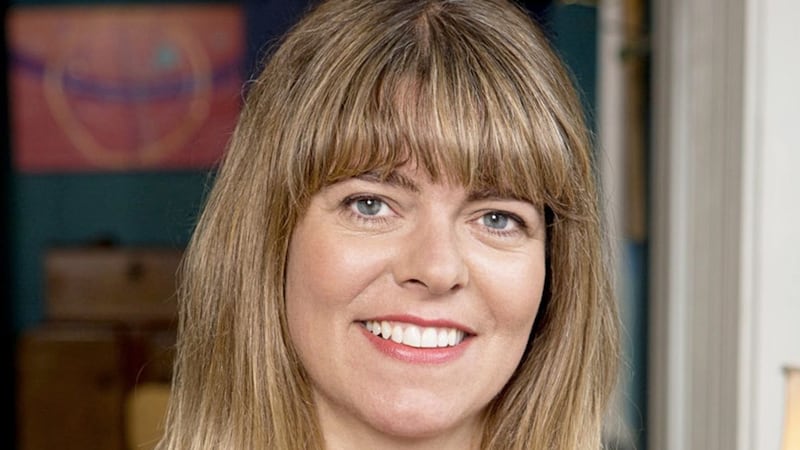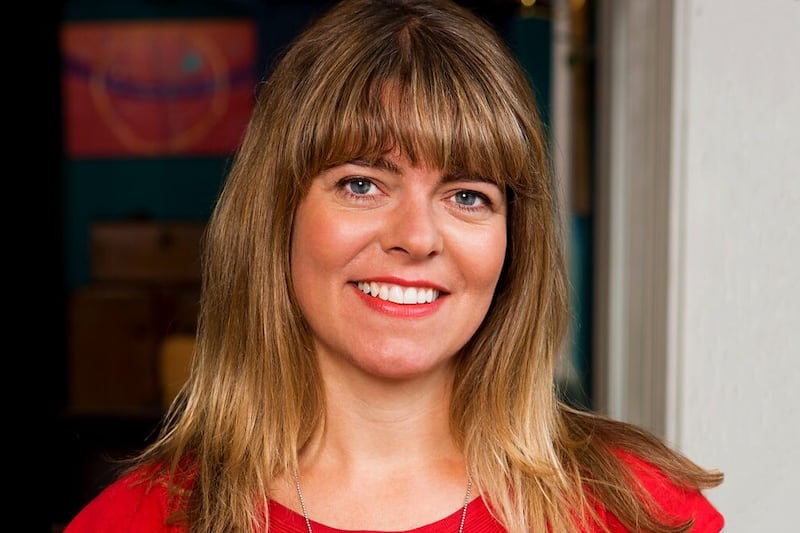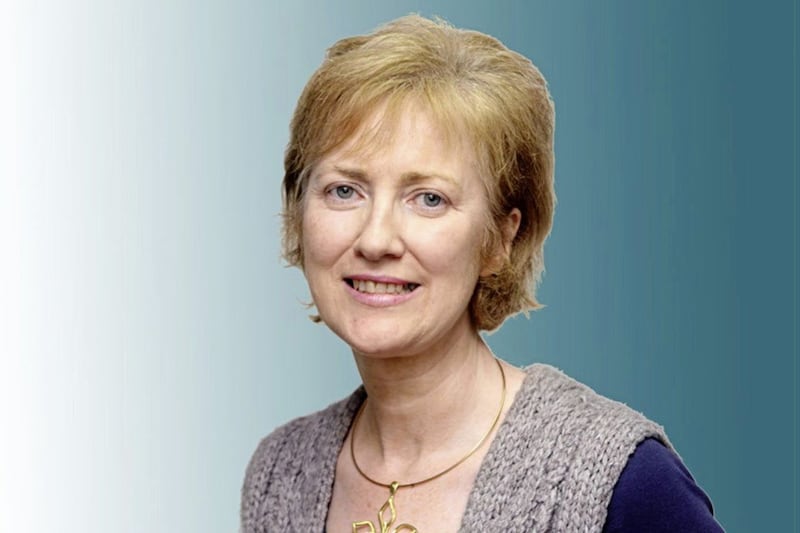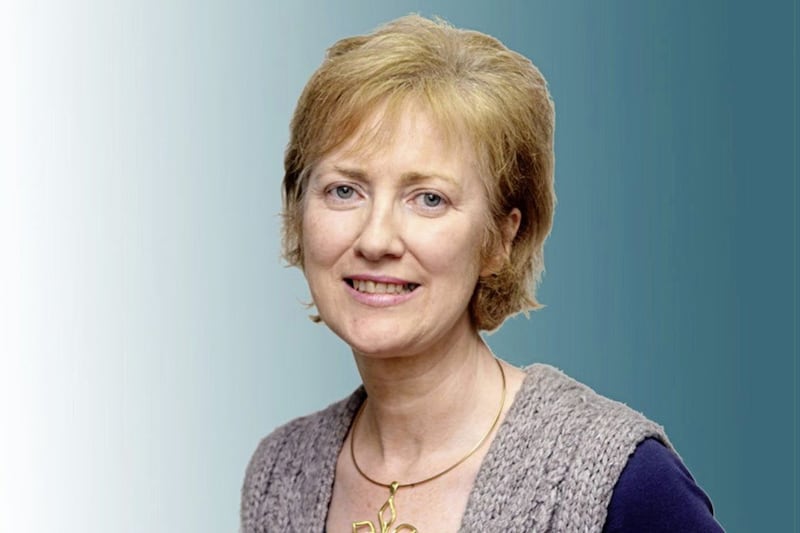DO YOU feel guilty about watching your favourite TV drama at the end of a day? Do you find yourself endlessly rushing from one activity to another? Do you eat your lunch at your desk while answering emails? Or often find yourself thinking that there are not enough hours in the day?
If the answer to any of these questions is 'yes' then it's time to "stop, slow down and take a rest". This is the message from Claudia Hammond, award-winning broadcaster, author and psychology lecturer.
Her radio shows, including All In The Mind on BBC Radio 4, cover psychology, mental health and neuroscience and explore how we can all put the latest evidence into practice in our own lives.
Her latest book, The Art of Rest, examines the science behind our struggles to rest and relax. It is largely based on the results of The Rest Test – the largest global survey into people's subjective experiences of rest.
A collaboration between academics at the Wellcome Collection and Durham University, and BBC Radio 4, The Rest Test was completed by 18,000 people from 135 different countries.
Results showed that the activities people found most restful were: reading; being in a natural environment; being on their own; listening to music; doing nothing in particular; walking; having a bath or shower; daydreaming; watching TV and meditating or practising mindfulness.
Surprisingly the results were very similar worldwide, with a few exceptions – being alone was top in German responses and being in nature was top among Canadian responses. Interestingly, being in the natural environment was less popular in Northern Ireland than in other parts of the UK.
Modern work practices, modern lifestyles and modern technology conspire to make life in the 21st century ceaselessly demanding. It is common to hear the complaint that rest is hard to find.
Equally, many people say they find it hard to do nothing and it was striking that in the Rest Test, almost 9 per cent of people said resting made them feel guilty or stressed.
It is a common misconception that watching television is bad for us and can turn us into 'couch potatoes'. However, global research is highlighting its benefits and giving us the go-ahead to lift that remote as a worthy means of giving us a distraction from the worries of work and life.
"There is no reason to feel concerned about moderate TV viewing," Hammond says. "A German study entitled The Guilty Couch Potato found that the more mentally exhausted we are, the guiltier we feel about watching TV and the less refreshed we feel afterwards. In fact, a big Brazilian study shows watching more than five hours of TV a day is associated with lower levels of wellbeing – but so is watching less than one hour."
With spiralling increases in stress and mental illness, Hammond argues that "rest is not a luxury; it's a necessity" for our physical, mental and spiritual wellbeing.
"For many of us, busyness has become a badge of honour, but rest is not a luxury: it’s vital to our wellbeing. There has been a lot of research on the risks of not getting enough sleep. Now I think we need to start taking waking rest seriously as well and view it as self-care rather than something selfish," adds Hammond, who warns that lack of rest can contribute to sleep difficulties.
"Resting allows you to unwind and stop your thoughts going around and around in your head. If you don't [rest], how can you expect your brain to turn off and go to sleep?"
Two thirds of people who responded to The Rest Test said that they needed more rest; those who didn't had significantly higher wellbeing scores. So what is the perfect prescription for rest?
"That depends on people's needs and circumstances. It was interesting that the highest levels of wellbeing was for those who got five to six hours. That sounds like an awful lot, but it depends on what you count as restful.
"For some people cooking the dinner is really restful or staring out the window on a train during your daily commute, listening to music or watching TV – it all adds up."
Hammond also encourages people to incorporate "micro rest breaks" into their working day, from getting a walk outside away from their desks, to shutting their eyes for a few moments or making a cup of tea.
"Tiredness can have a serious impact on our cognitive abilities. A task which seems easy when you're fresh is rendered far more difficult when you are fatigued. Having a two-minute break and a cuppa can enable you to concentrate and work more efficiently.
"It's also important to not to spend the lunch break at your desk doing other admin jobs, such as answering personal emails or doing the grocery shop online," warns Hammond.
So, has she taken her own advice and incorporated rest into her daily schedule?
"Yes, I prescribe myself 15 minutes of gardening, without feeling guilty, for the sake of my mental health. And the moment I step into my tiny greenhouse, I feel so calm," she tells me.
"Feeling the soil in my hands and seeing the constant changes and growth that occur, even when I'm not there, never ceases to amaze me."
Of course, gardening isn't for everybody. Some people enjoy knitting, others rest by doing exercise.
"Resting doesn't have to mean sitting in a chair doing nothing at all, because for many that can be quite hard. Eight per cent of those surveyed said running was their source of rest, because they couldn't rest their minds until their body was tired."
Hammond is looking forward to coming to the Northern Ireland Science Festival, where as well as talking about rest, she will be discussing the latest research into how children understand time, with Professor Teresa McCormack of Queen's University Belfast and Dr Victoria Simms of Ulster University.
And showing no signs of resting on the professional front, as well as her lecturing and broadcasting commitments, Hammond is involved in a new global survey with the Wellcome Collection and BBC Radio 4 which has just launched, investigating people's attitudes to touch.
"Touch is a very contemporary issue. We will be looking at what levels of touch people find appropriate in workplaces and how new technology is affecting our attitudes towards touch."
:: Claudia Hammond will be hosting BBC Radio 4's All In The Mind Live on February 23 at 12.30pm at the MAC in Belfast, followed by a discussion on The Art of Rest at 3.30pm. Both events are part of the Northern Ireland Science Festival. For tickets and full festival programme visit Nisciencefestival.com. You can take part in the Touch Test at Touchtest.org.






